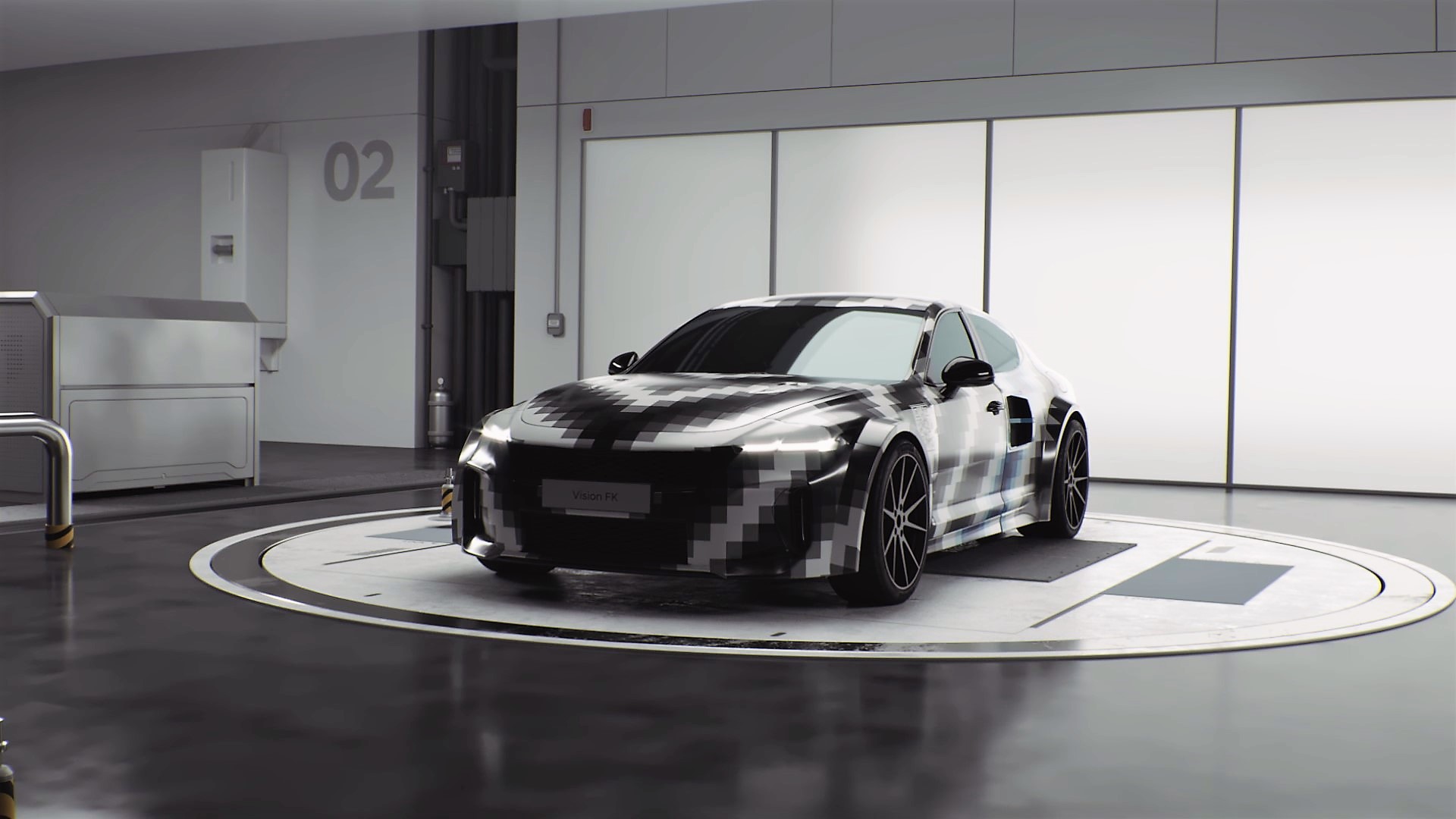Snapshot
- It’s claimed the Vision FK is capable of 0-100km in under four seconds
- It is co-developed with Croatian hypercar distruptor Rimac
- Other concepts include FCEV autonomous trucks and rescue vehicles
A 500kW sports sedan prototype with sub-4.0-second 0-100km/h claimed acceleration has headlined a showcase of Hyundai hydrogen fuel-cell EV concepts revealed online today.
The Vision FK hybrid sports car is the star of this week’s ‘Hydrogen Village’ (HydroVille) exhibition in Goyang, Korea, which features several fuel-cell concept vehicles for future mobility and power generation.
Not too much has been revealed about the Vision FK’s performance beyond its maximum output of more than 500kW, an expected driving range of more than 600km and sharp twin-motor torque vector steering.
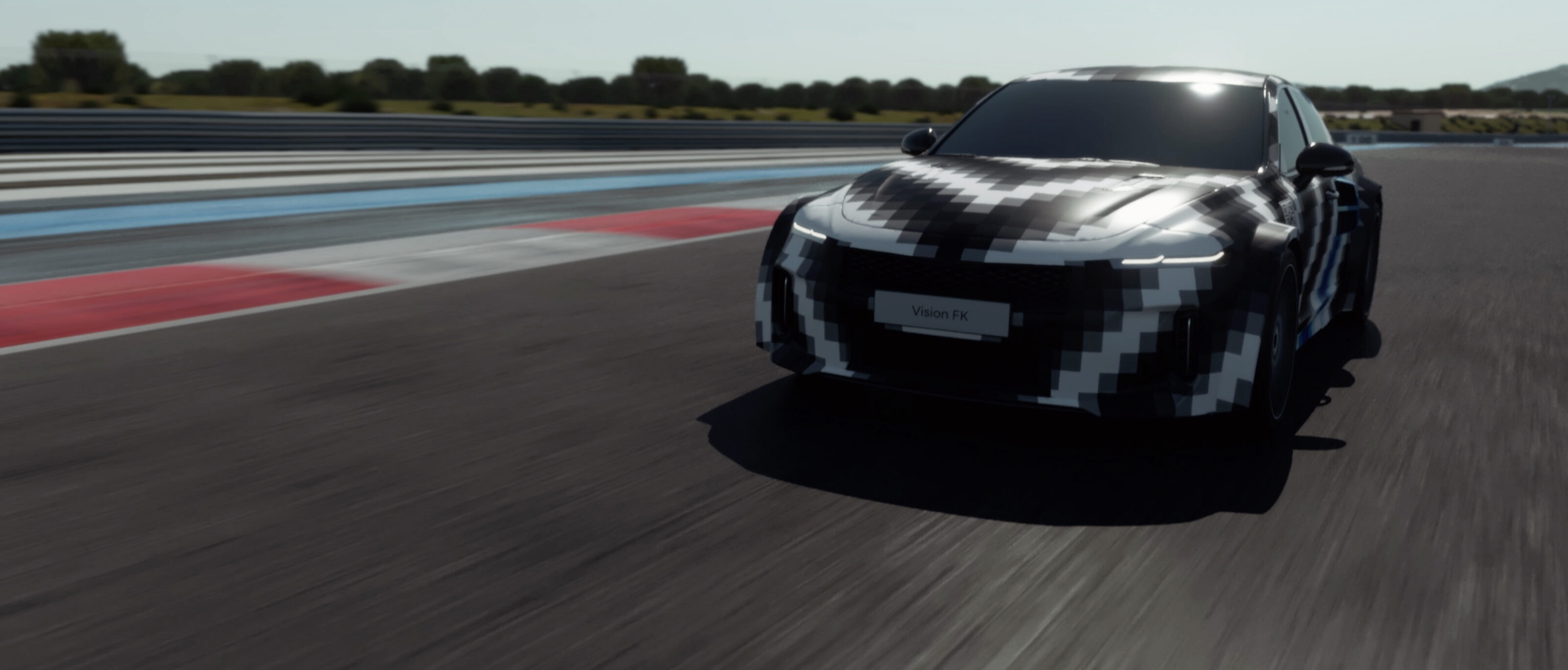
Designed to demonstrate how fuel-cell technology can be applicable to high-performance vehicle applications, the co-development between Hyundai and Rimac Automobili combines a fuel-cell energy converter with a high-power, rear-wheel-drive, plug-in electric powertrain.
Rimac, which benefitted from a AU$129 million Hyundai cash injection in 2019, helped develop the power-electric system, while Hyundai’s performance and fuel-cell engineers concentrated on all the others.
Albert Bierman, Hyundai’s president of research and development, said the collaboration with Rimac will form the basis for mass-produced, hydrogen-powered, high-performance vehicles in the future.
Beirman admitted the Vision FV is technological overkill, but said it presented an exciting challenge which will lead to the introduction of new technologies which will make their way into mainstream FCEV vehicles.
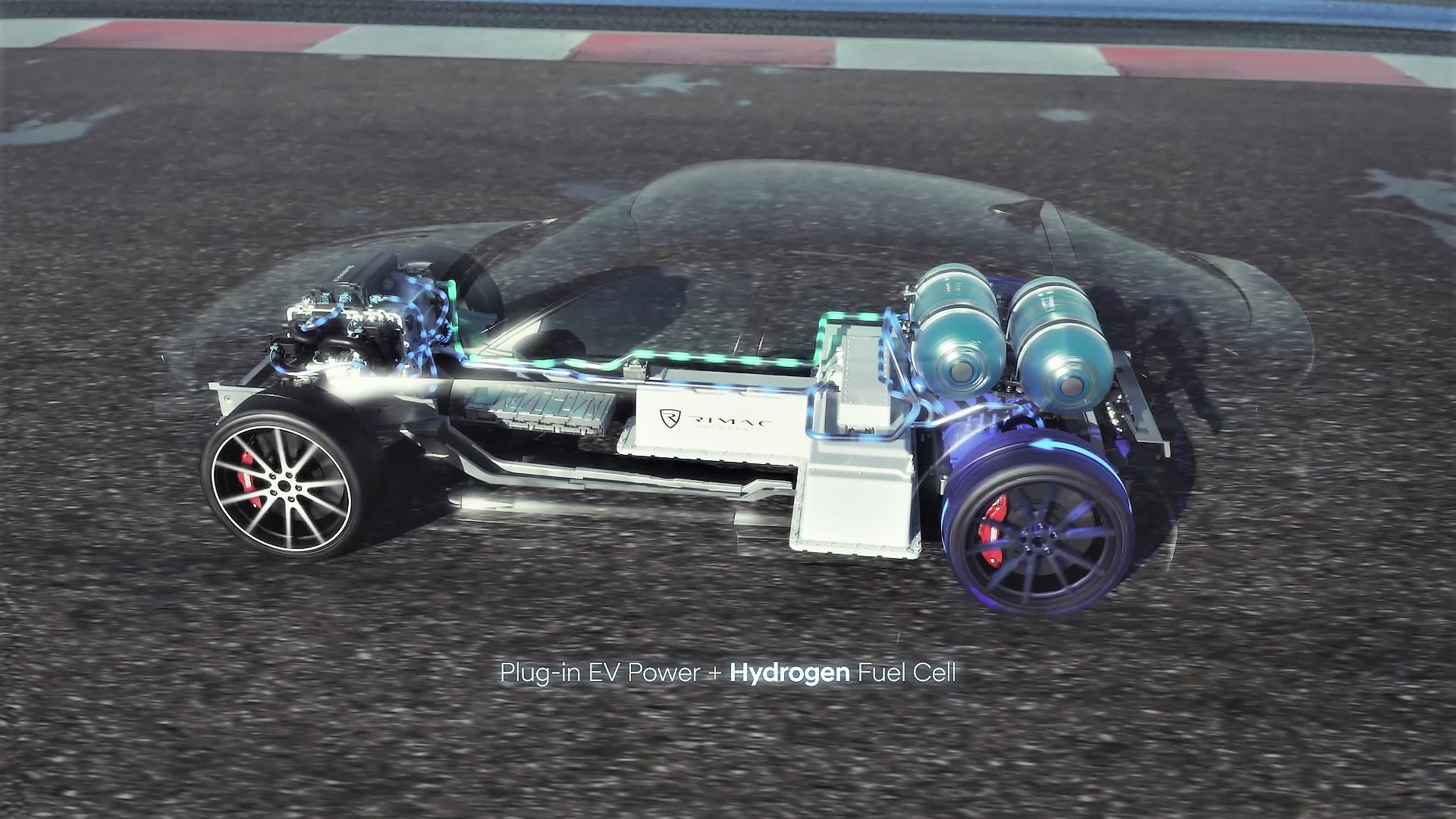
FCEV concepts
HydroVille also features a range of concept vehicles from Hyundai and affiliates, including the Trailer Drone, a hydrogen-powered container transportation system capable of operating autonomously.
It can carry a flexible number of hydrogen tanks tailored to its journey profile to ensure more than 1000km of sufficient driving range.
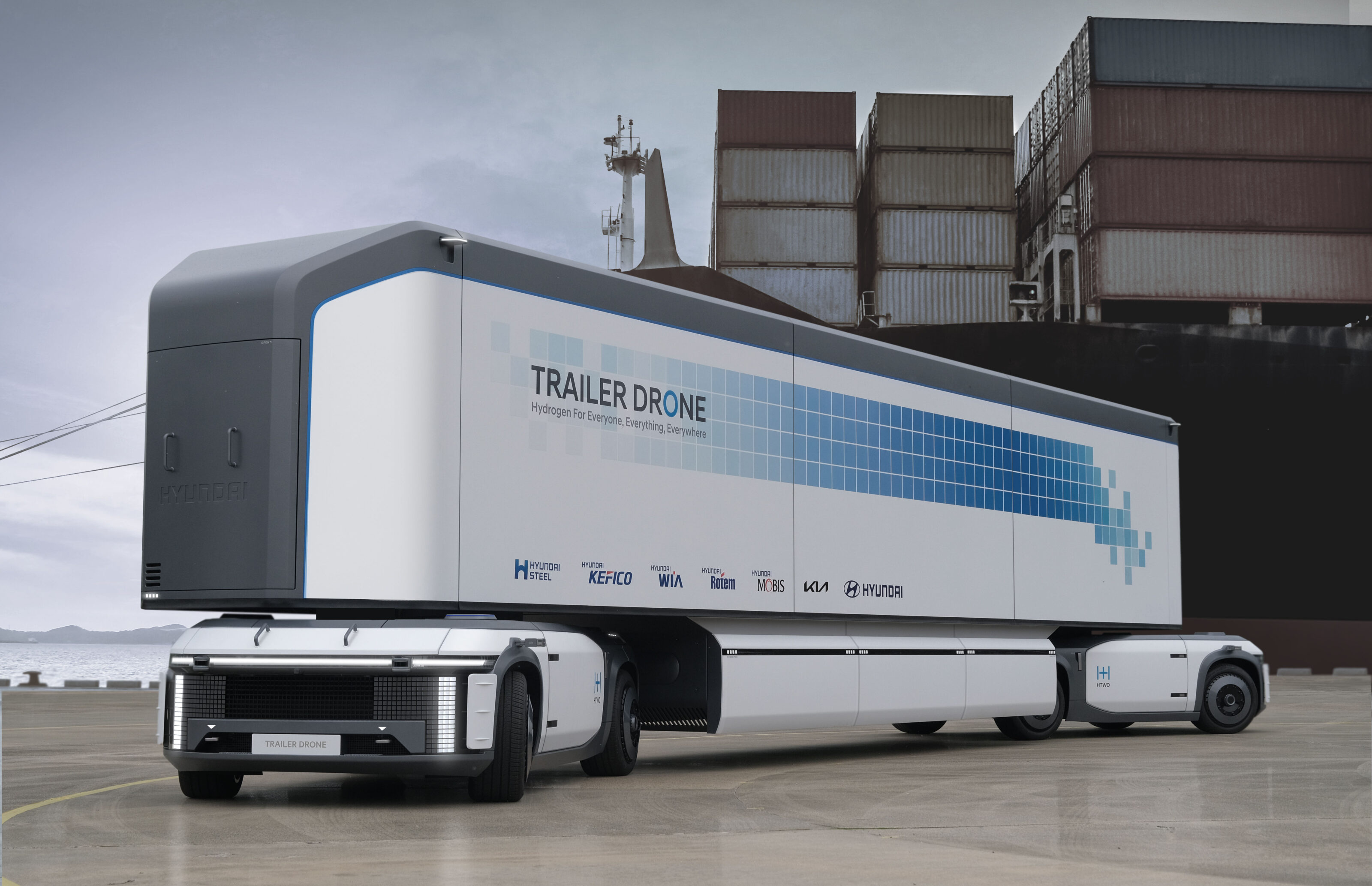
Its autonomous capabilities were designed from scratch due to the unique requirements of container transport applications and the way terminals operate.
This led to the development of the Fuel-Cell e-Bogies, which sit under the container at each end with fully independent four-wheel steering – allowing for high levels of manoeuvrability, including sideways movement.
The Trailer Drone can move autonomously through port-side operations and tight urban environments. Efficiency is further boosted by the ‘Cluster Mode’ which enables multiple Trailer Drones to travel together in an almost train-like configuration.
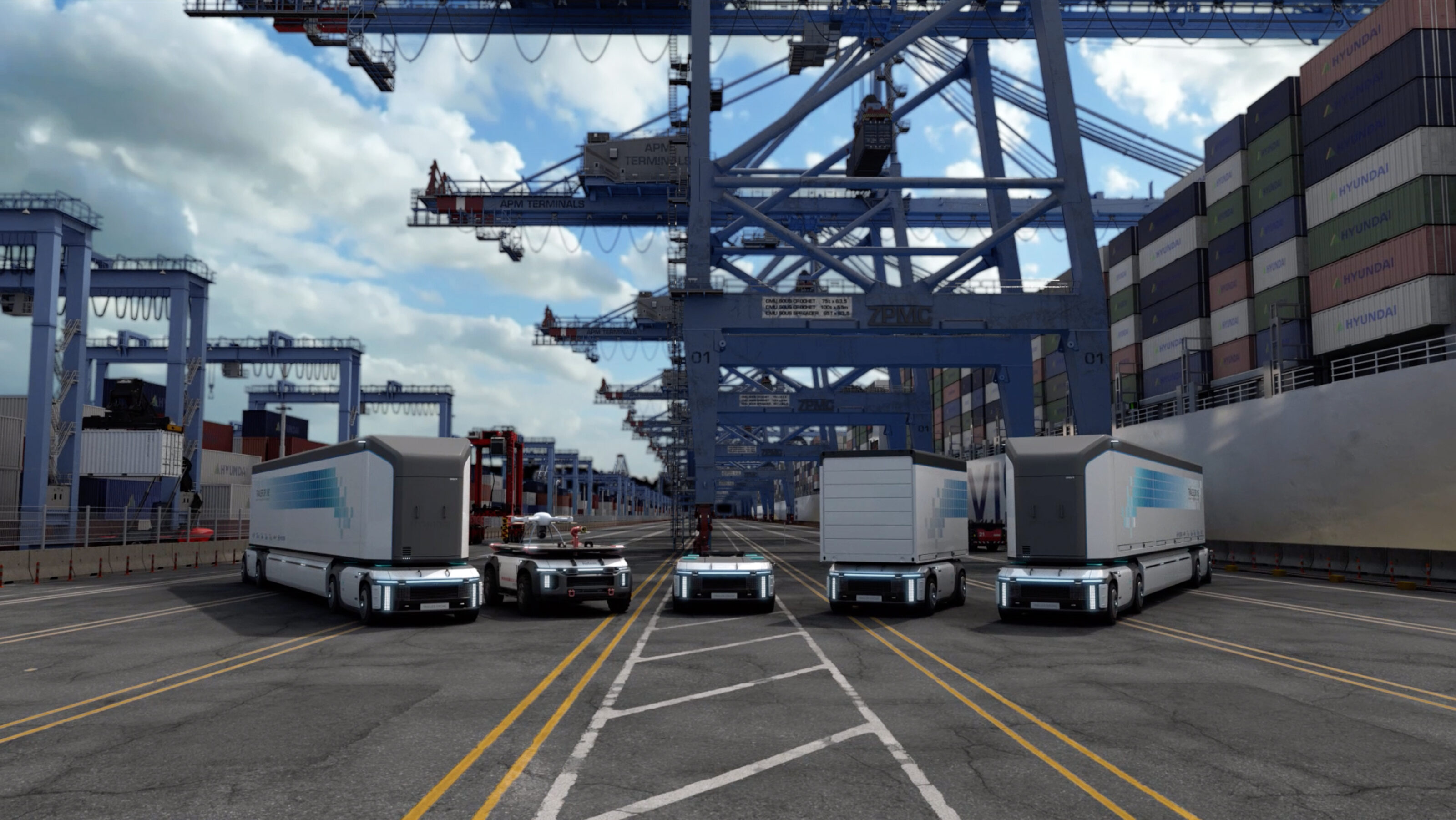
The Rescue Drone concept is a mobility solution which combines with a Fuel-Cell e-Bogie to create a flying drone that can be operated remotely and autonomously for critical operations, such as fire-fighting and life-saving.
It features an independent steering system for in-place turning manoeuvres and crab-walk driving.
It can also carry out missions via images transmitted from drones mounted on the vehicle exterior, and achieves a 450 to 500km driving range from a single charge.
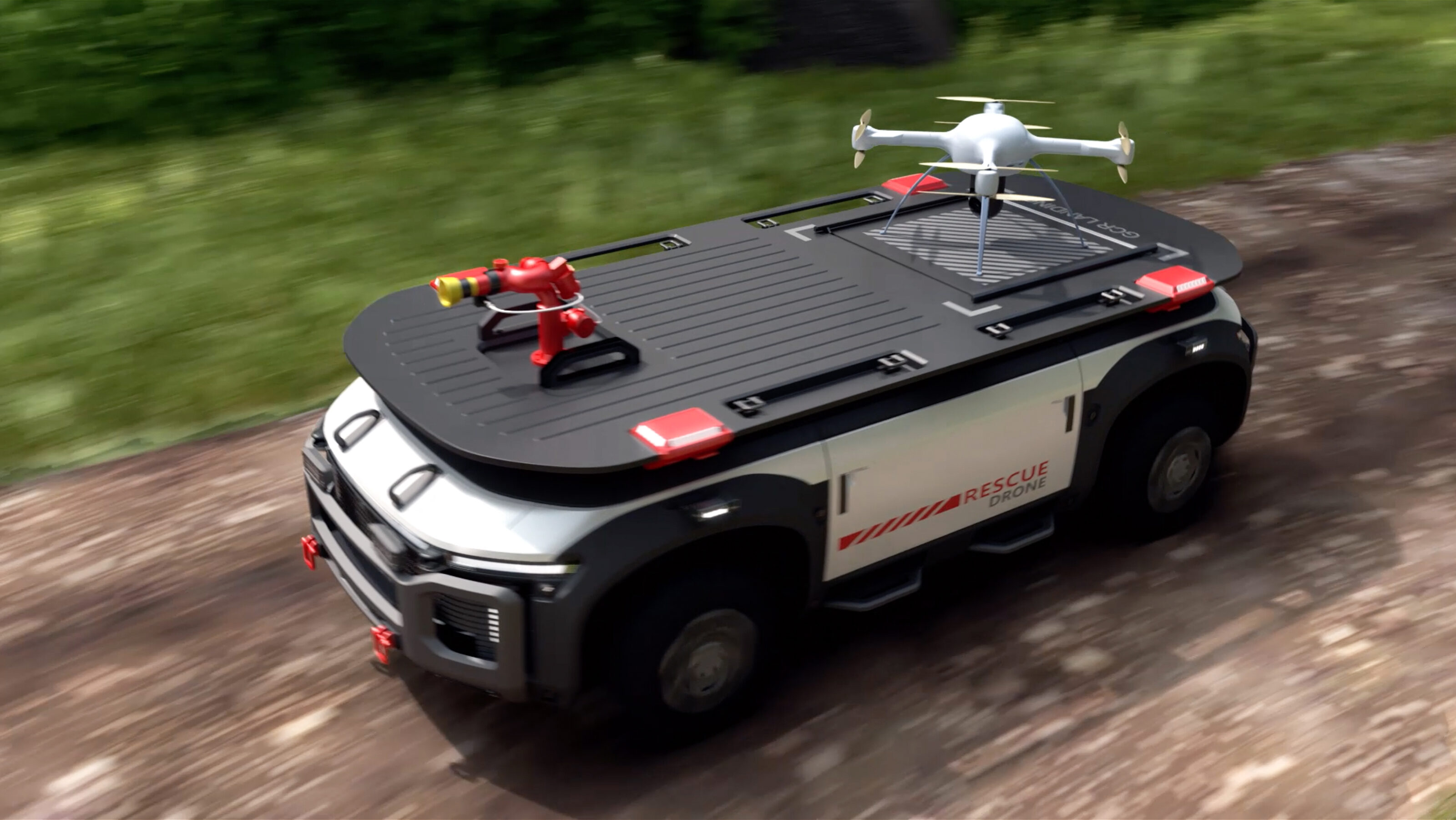
A couple of other concepts have been developed to help overcome range anxiety for FCEV and BEV drivers. These include the H Moving Station, which is a heavy-duty vehicle equipped with charging facilities for FCEVs.
This portable solution ensures convenience, as well as charging options in areas with limited hydrogen refuelling stations.
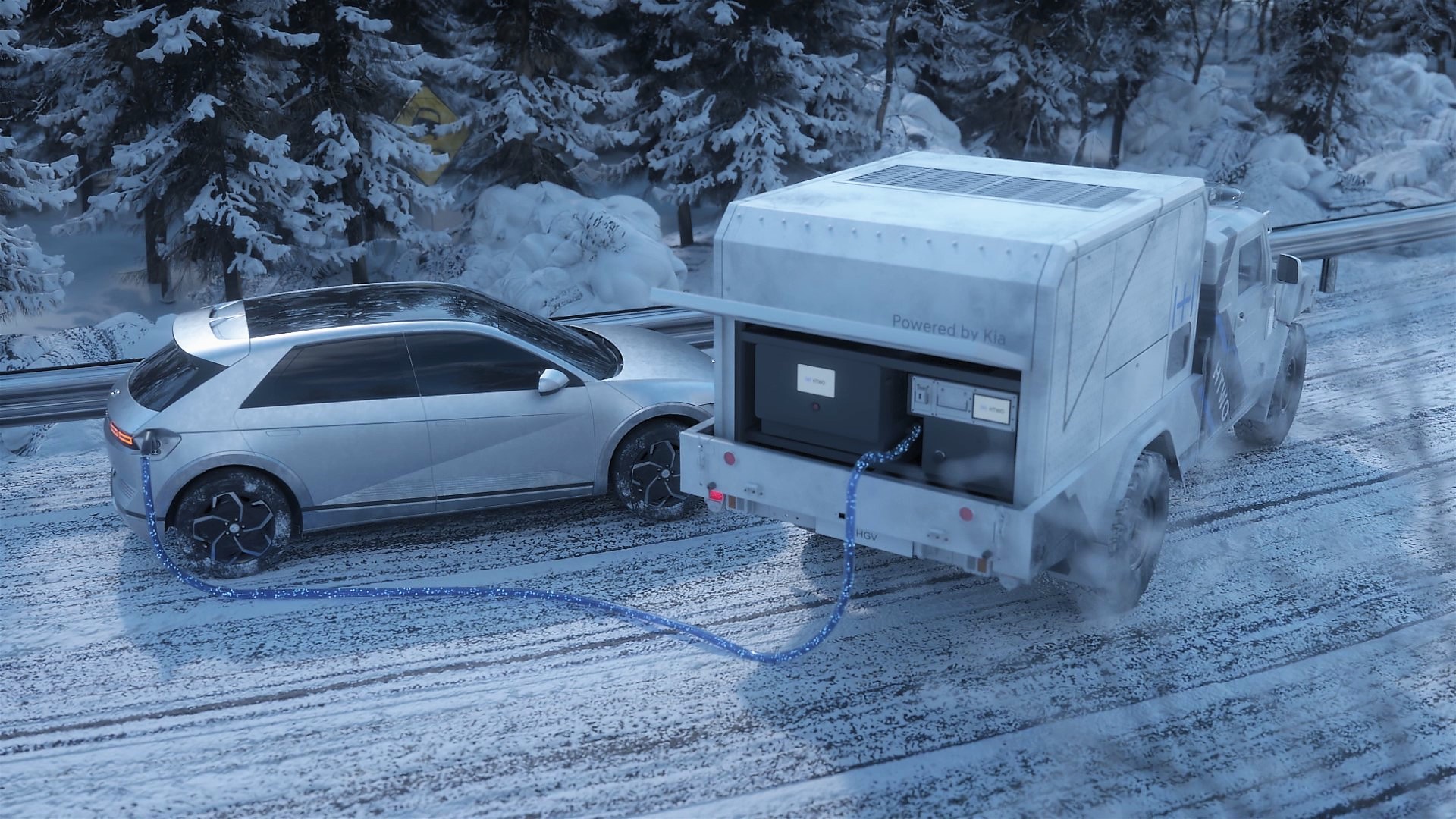
The Kia RHGV meanwhile supplies power to BEVs in need of urgent assistance, but in remote and off-road areas.
Its portable EV battery charger offers single-phase 220V and three-phase 380V simultaneous power supply.
We recommend
-
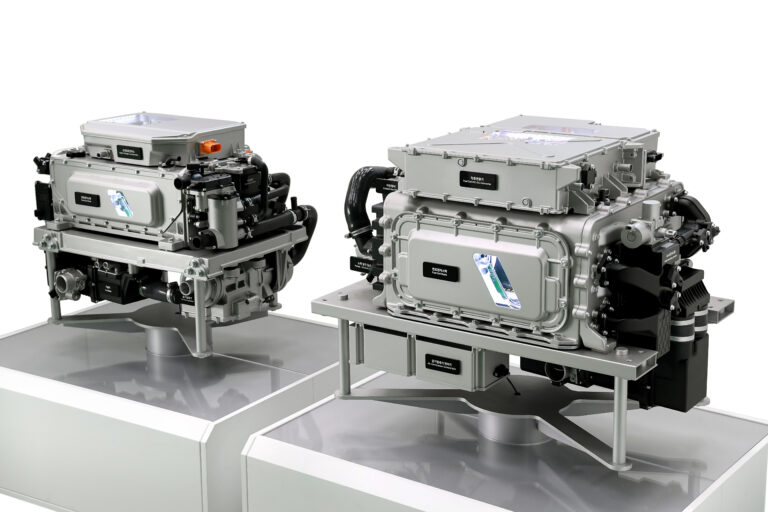 News
NewsHyundai reveals cheaper, punchier fuel-cell system
The next generation of Hyundai hydrogen-powered passenger vehicles will be up to 50 per cent cheaper, 30 per cent lighter and twice as powerful
-
 News
NewsFive hydrogen Hyundai Nexos join Queensland Government fleet
Sunshine State's Government begins adopting hydrogen power
-
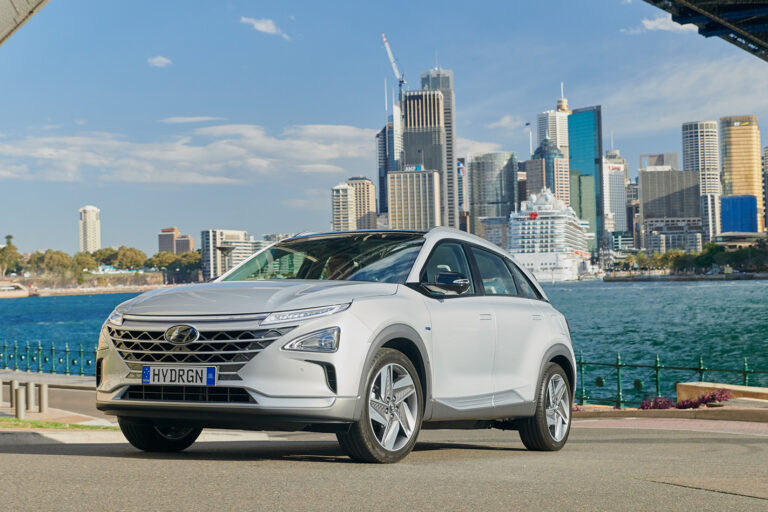 News
News2021 Hyundai Nexo goes on sale in Australia
The Hyundai Nexo FCEV represents a big technological leap, but buying one isn't a straight forward process


